New intercultural workshop part of the CoolTour Tube program
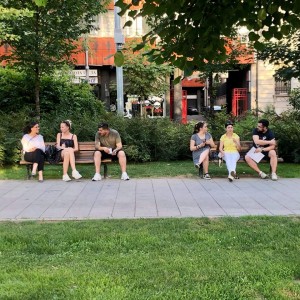 Last week, young people, who are part of the CoolTour Tube program – Mina and Karox, had an opportunity to run an intercultural workshop for local youth.
Last week, young people, who are part of the CoolTour Tube program – Mina and Karox, had an opportunity to run an intercultural workshop for local youth. Last week, young people, who are part of the CoolTour Tube program – Mina and Karox, had an opportunity to run an intercultural workshop for local youth.
Last week, young people, who are part of the CoolTour Tube program – Mina and Karox, had an opportunity to run an intercultural workshop for local youth.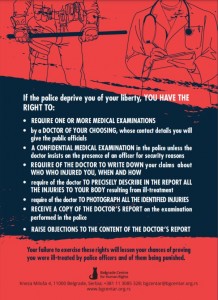 The Belgrade Centre for Human Rights (BCHR) conducted a public opinion survey to gauge how familiar Serbia’s citizens were with their rights in case they are deprived of liberty. The survey was prompted by the July 2020 protests in a number of Serbian cities, when a large number of people were illegally arrested and ill-treated by the police, both in the streets and in police stations. The many cases BCHR was involved in at the time and the proceedings initiated by BCHR against public officials who used excessive force and ill-treated individuals identified the need to inform the public at large of their rights if they are arrested.
The Belgrade Centre for Human Rights (BCHR) conducted a public opinion survey to gauge how familiar Serbia’s citizens were with their rights in case they are deprived of liberty. The survey was prompted by the July 2020 protests in a number of Serbian cities, when a large number of people were illegally arrested and ill-treated by the police, both in the streets and in police stations. The many cases BCHR was involved in at the time and the proceedings initiated by BCHR against public officials who used excessive force and ill-treated individuals identified the need to inform the public at large of their rights if they are arrested.
The survey showed that as many as 24.2% of the respondents were unable to list any of their rights in case they were deprived of liberty. Slightly over a third of the respondents (34.9%) knew that they were entitled to notify and engage a lawyer of their own choosing.
In response to a question asking them to list all their rights in case of arrest, only 2.3% of the respondents said that they were entitled to a medical examination after arrest. Such an answer was given by 1.6% of the respondents in the 18-40 age category. BCHR consequently prepared a guide on post-arrest rights and the right to a medical examination.
Individuals deprived of liberty by the police are entitled to require a medical examination by a doctor of their own choosing. Such an examination must be confidential unless the doctor insists on the presence of an officer for security reasons. Arrestees are entitled to require of the doctor to write down their allegations about how they sustained the injuries, to describe them precisely and photograph them. They are also entitled to a copy of the medical report containing all this information, and to raise any objections to the doctor’s report.
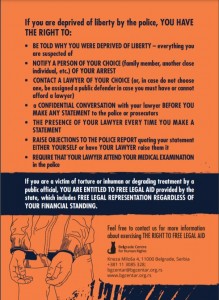 In BCHR’s experience, it is extremely difficult to prove in court that an individual was injured injuries during arrest or in the police station in the event these injuries have not been described in detail and photographed and the doctors did not list in their reports the victim’s allegations about how they were sustained.
In BCHR’s experience, it is extremely difficult to prove in court that an individual was injured injuries during arrest or in the police station in the event these injuries have not been described in detail and photographed and the doctors did not list in their reports the victim’s allegations about how they were sustained.
Over 50% of the respondents in the 18-40 age group thought that the police had used excessive force against the participants in the July 2020 protests. Most of the respondents in this age group who held that view were between 26 and 32 years old, lived in urban settlements, and in Vojvodina and worked in the public or private sectors. Over half of the respondents thought that the protests would have lasted longer had the police not resorted to excessive force.
In order to better inform the citizens of Serbia, the BCHR has created posters and leaflets in Serbian with useful information on Post-Arests Rights, as a maesure for preventing and proving police ill-treatmen. Materials are focused on Legal Aid and Medical Report in case of police ill-treatment. Posters and leaflets are also available in English here and here.
The BCHR survey was conducted by NINAMEDIA in January and February 2021 on a representative sample at the national level. The survey results in Serbian are available here – total population and here – 18-40 age group.
The implementation of the survey and the publication of educational materials have been funded within the project Legal Support to Victims of Police Brutality during the July 2020 Protests and Analysis of Judicial and Prosecutorial Practices in Torture and Ill-Treatment Cases in the January 2018-June 2020 Period, funded by the European Centre for Not-for-Profit Law (ECNL).
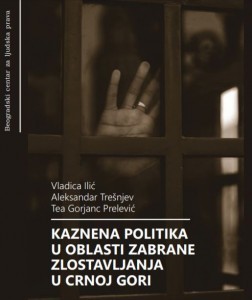 The Belgrade Centre for Human Rights has published Sentencing Policy with Respect to Ill-Treatment in Montenegro, prepared by Vladica Ilić, Aleksandar Trešnjev and Tea Gorjanc Prelević. The prohibition of torture and inhuman or degrading treatment or punishment is one of the few international human rights law norms that are absolute and non-derogable. Despite the crucial importance of the prohibition of ill-treatment, human dignity, that is, the physical and mental integrity of individuals, is still violated, while various crimes committed by public officials remain the “dark figure of crime” or are inadequately punished. This was the main reason why we researched and analysed Montenegro’s sentencing policy with respect to ill-treatment.
The Belgrade Centre for Human Rights has published Sentencing Policy with Respect to Ill-Treatment in Montenegro, prepared by Vladica Ilić, Aleksandar Trešnjev and Tea Gorjanc Prelević. The prohibition of torture and inhuman or degrading treatment or punishment is one of the few international human rights law norms that are absolute and non-derogable. Despite the crucial importance of the prohibition of ill-treatment, human dignity, that is, the physical and mental integrity of individuals, is still violated, while various crimes committed by public officials remain the “dark figure of crime” or are inadequately punished. This was the main reason why we researched and analysed Montenegro’s sentencing policy with respect to ill-treatment.
The publication is available in Serbian HERE.
The BCHR will soon publish a report on Serbia’s sentencing policy with respect to ill-treatment.
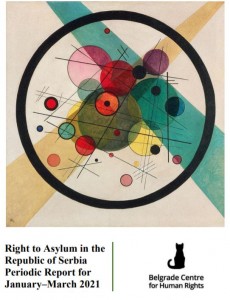 Belgrade Centre for Human Rights has compiled a periodic report “Right to Asylum in the Republic of Serbia – Periodic Report for January–March 2021” covering the first three months of 2021, addressing specific issues that, in view of its team, were particularly important in the reporting period. They include Constitutional Court decisions on claims concerning violations of some of the fundamental human rights of asylum seekers and migrants, which the BCHR had alerted to in its prior reports, as well as analysis of the asylum authorities’ practice and some of their noteworthy adopted decisions.
Belgrade Centre for Human Rights has compiled a periodic report “Right to Asylum in the Republic of Serbia – Periodic Report for January–March 2021” covering the first three months of 2021, addressing specific issues that, in view of its team, were particularly important in the reporting period. They include Constitutional Court decisions on claims concerning violations of some of the fundamental human rights of asylum seekers and migrants, which the BCHR had alerted to in its prior reports, as well as analysis of the asylum authorities’ practice and some of their noteworthy adopted decisions.  The Belgrade Centre for Human Rights invites you to apply for a call for project proposals for the award of national grants related to the prevention of smuggling of migrants and/or protection of smuggled migrants, within the project Security for People and Borders – Combating Smuggling of Migrants in the Western Balkans. The project is implemented with the European Union funds.
The Belgrade Centre for Human Rights invites you to apply for a call for project proposals for the award of national grants related to the prevention of smuggling of migrants and/or protection of smuggled migrants, within the project Security for People and Borders – Combating Smuggling of Migrants in the Western Balkans. The project is implemented with the European Union funds.
All (non-profit) civil society organizations can apply by May 31, 2021 at the latest.
For more detailed conditions and rules for submitting proposals, please see document: 2. Guidelines for Applicants.
An online information session on project implementation, financial monitoring and reporting will be organized on May 11, 2021 at 1 p.m. All those interested can apply for participation in the information session no later than May 10, 2021 at: https://forms.gle/qwHHmVPhBCvFrX5f9.
Project proposals, applications for the information session, as well as all questions and requests for clarification should be sent to: [email protected]
Please take note of the following documents:
2. Guidelines for Applicants_ENG
3. Annex A – Application Form __ENG
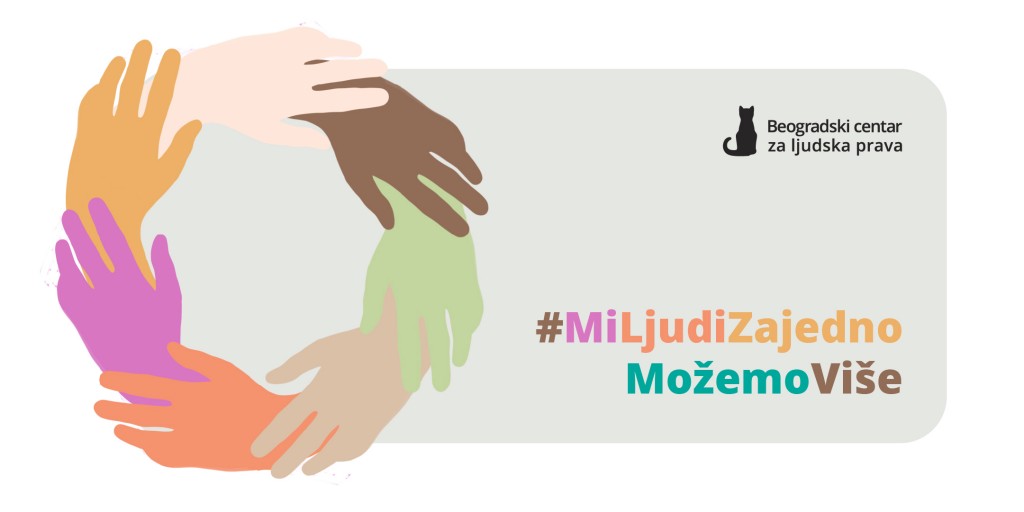 Today’s world has become a place of conflict and persecution, creating a large number of refugees who seek peace, the opportunity to work, to continue their education, have a safe childhood, gather the family together and friends.
Today’s world has become a place of conflict and persecution, creating a large number of refugees who seek peace, the opportunity to work, to continue their education, have a safe childhood, gather the family together and friends.
Many refugees in search of a peaceful life fleeing conflict or persecution see our country as a place where they can start life anew. The successful process of their integration is consisting of: achieving a dignified life, adjusting to cultural norms and the local community, but also a significant contribution that refugees can make to the development of society with their previous experience, knowledge and talents. In this process, they need the help of all of us!
Public discourse in Serbia, including television with a national frequency, is full of false news and inappropriate content on most social and political issues. Manipulation of facts, especially numbers when the topic of refugees in this regard is also present, especially on the Internet, and contributes to the spread of hate speech and fear among the citizens of Serbia.
The Belgrade Centre for Human Rights is launching an online campaign #MiLjudiZajednoMožemoViše to highlight the importance refugee’s integration into Serbian society and the mutual benefits that both society and its new members have from this process. In addition, we want to point out the importance of social cohesion, multiculturalism and contribute to reducing the gap between communities in order to create a tolerant society where everyone has a chance for a dignified life.
Once again, we want to point out the importance of transparent migration policy, which would make citizen information on this issue accessible and clearly presented.
You can follow the campaign #MiLjudiZajednoMožemoViše on our social media profiles – on Facebook, Instagram and Twitter.